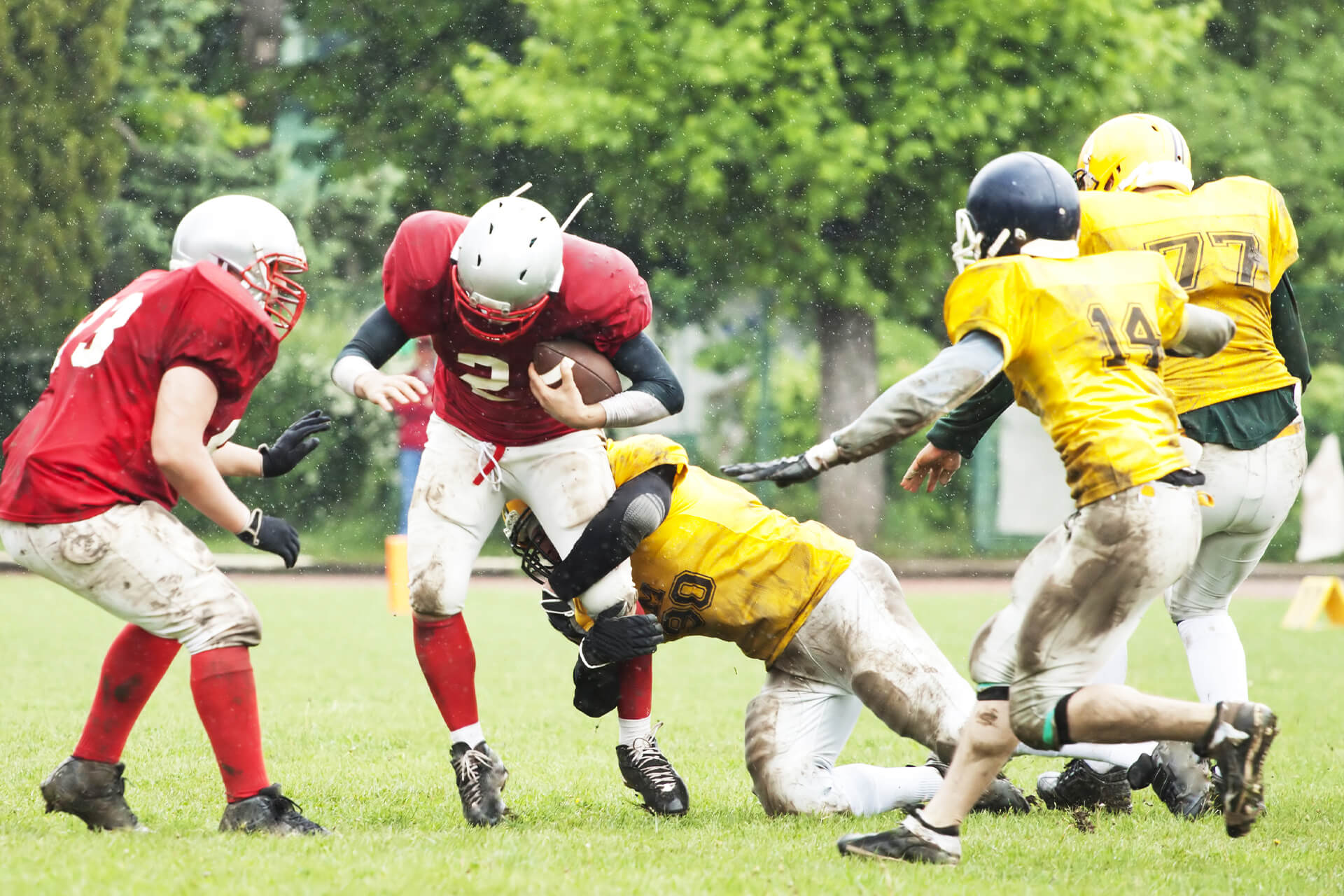The two main types of sports injuries are traumatic and overuse injuries. The onset of traumatic sports injury is very sudden. Strain and sprain are the two most common types of traumatic sports injury. A sprain is an injury to the ligaments, while a strain is an injury to the tendons or muscle fibers. Overuse injuries are the consequences of repetitive injuries over time and are very common.
Here are ten tips to prevent sports injuries
- Wear protective gear: Choose a proper protective gear and footwear. The preventative sports gear helps to protect you from sprains, strains, head injury, and fractures. If you are not sure about the protective gear, talk to your coach or parents or a retailer specializing in sports gear. Wear the protective gear while playing and practicing. The type of gear depends on the sport you play. Helmets are widely used and are the most common type of protective gear. This is because any head injury can lead to serious complications, traumatic brain injury, coma, and even death. Always make sure that you are wearing the fitting helmet for the sport to prevent sports injury. Do not wear the baseball batting helmet while playing football! A helmet should fit snugly but comfortably. Fasten the helmet strap as it may fall off when you need it most. Other sports protective gear includes mouth guards, eye protection, pads, wrist, elbow, knee guards, etc.
- Stretch to avoid strain: Do some stretching exercises once you cool down. This helps to maintain flexibility in the major muscles. Stretching is a great way to loosen the muscles and prevent sports injury because of tendon and muscle strains.
- Know the game and its rules: Follow the game rules to prevent severe sports injury. When all the athletes know the rules, the risk of sports injuries is less.
- Watch out for others: Sports have some rules that have nothing to do with scoring points or penalties. All games have some rules to protect the athletes and being courteous. You need to watch out for others and communicate on the field.
- Rest: Athletes have consecutive days of rigorous training. Although many athletes believe that the more they train, the better they will play in the game. However, this is a misconception. One of the critical components of proper training is rest. It helps to strengthen the body and also aids in preventing sports injuries caused by overuse and poor judgment.
- Avoid sports if you’re injured: Although sports are tempting and fun, it is essential to avoid them if you are injured. Don’t get back in the game after an injury. Pain indicates an issue. Pay attention to all the warning signs your body provides. Sports injuries can worsen. Seek medical attention for sports injuries. Return to the game only when the doctor gives a green signal.
- Hydrate: For athletes, heat-related illness is a significant concern. Hydration is essential during the hot and humid climate. To prevent any sports injury, have adequate water before, during, and after the game or practice. Also, watch for any signs and symptoms of a heat-related illness, fatigue, confusion, fainting, or traumatic brain injury. Take fluids 30 minutes before participating in any physical or sports activity. Water breaks are also crucial.
- Cool-down: Cooling the body down after any sports-related activity is very important. The cooling down time is twice the warm-up time. It is another excellent way to prevent sports injury.
- Take your time: Learn sports techniques. Avoid pushing yourself too hard and too fast to get into shape. We all need adequate time to increase training levels. Our bodies need time to adjust to the stresses on the muscles, bones, and joints. Give plenty of time to recover between workouts.
It is possible to avoid and prevent sports injuries if you follow the rules and listen to your coaches. Mild or moderate sports injuries respond well to treatment. In case of severe traumatic injury, seek professional medical care.


